Civil Society Organizations and other stakeholders are urging the government to increase budgetary allocation for HIV prevention or risk losing the gains made over the years.
They argued that Kenya has made significant strides in the war against HIV/AIDS citing, for instance, the fact that mortality and prevalence rates have been dropping over the years as a result of intervention measures put in place by the government and other stakeholder players.
Speaking during an HIV Prevention coalition meeting for the dissemination of the CSO HIV prevention shadow report and the HIV prevention multi-sector acceleration plan in Nairobi, experts expressed concern that the shrinking donor funding will negatively impact successes so far.
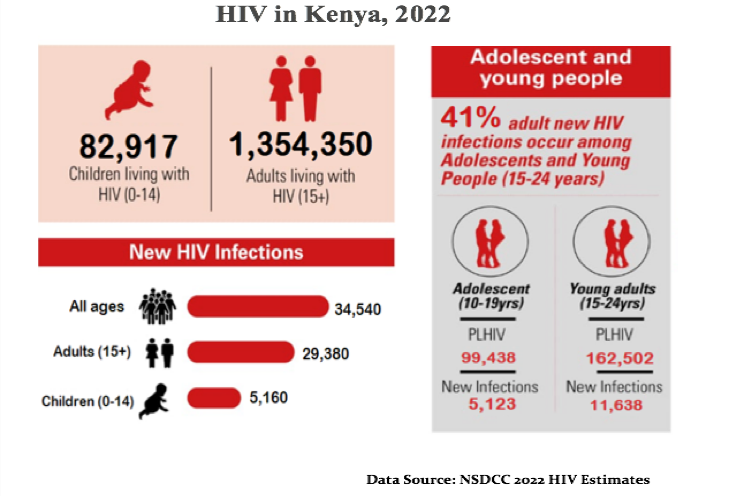
Dr. Peter Arimi, Project Director, Health System Technical Support Unit at the National Syndemic Diseases Control Council says if HIV prevention interventions are scaled down due to donor funding, then Kenya risks going back to the situation of yesteryears where prevalence and mortality rates were high.
‘External financing for Kenya’s health programmes has significantly declined as Kenya has graduated to a lower middle-income country, therefore, domestic resource mobilization to finance gaps left by donors is imperative for Kenya to secure the gains made and scale up the national response to HIV and AIDS,” he said
He spoke of the need for organizations involved in the HIV response to come together and push for increased local financing to scale up intervention measures. He said local funding can fill the gap and help Kenya achieve its target of having zero new HIV infections by 2030 even as he indicated that NSDCC is pushing for the inclusion of an HIV package in primary healthcare and the Social Health Insurance Fund (SHIF).
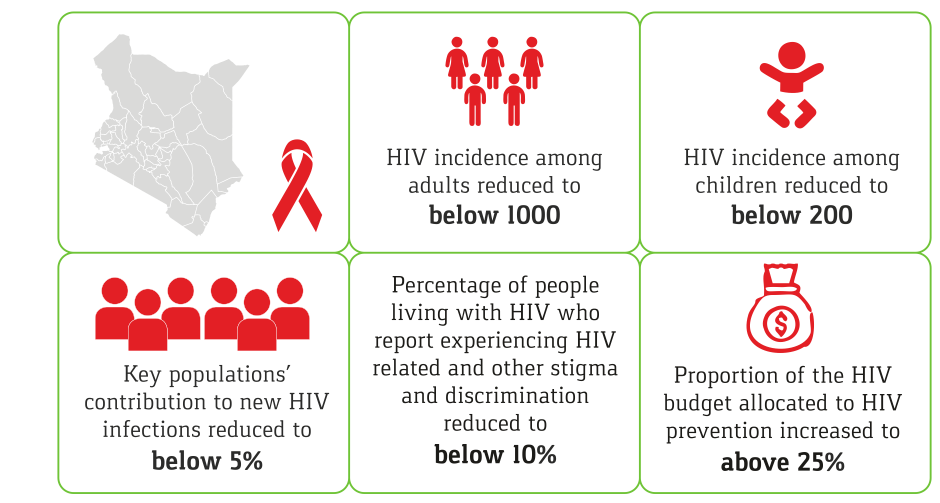
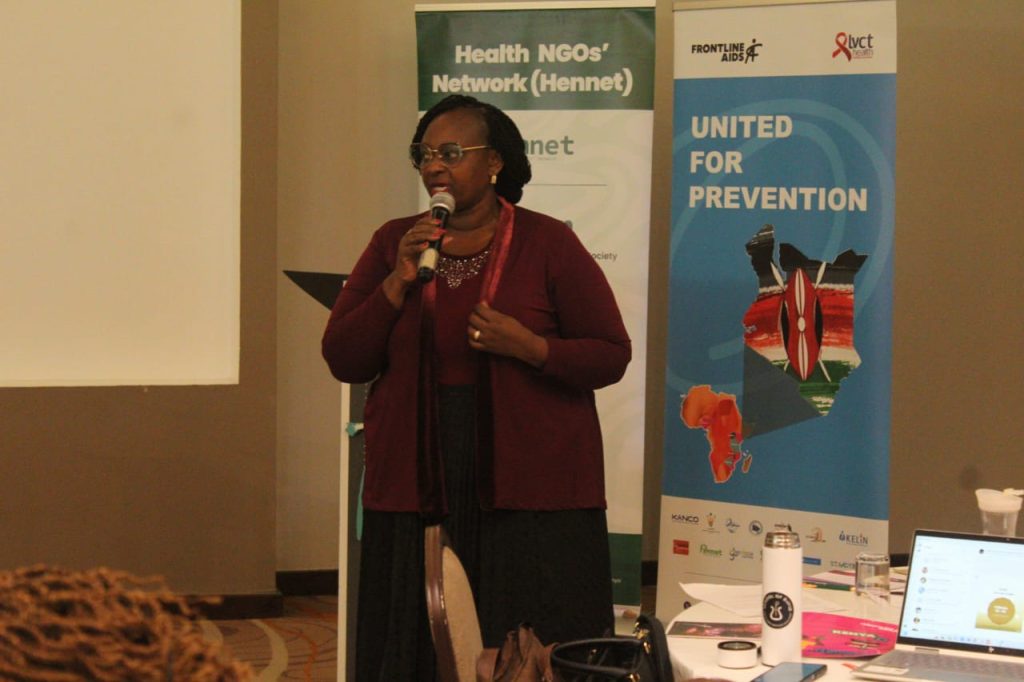
His message resonated well with a majority of the speakers attending the forum.
“We have achieved many strides in the HIV prevention space, however, we still have some targets which are off track, hence the need for increased funding for HIV prevention,” said Patricia Jeckonia, the Partnerships, and Policy Advisor at LVCT Health
Dr. Margaret Lubaale, Executive Director, Health NGOs Network (Hennet) supported her views adding that; “The HIV prevention agenda requires collaboration by all players. We can build on the successes we have and embrace the HIV Prevention shadow report recommendations”
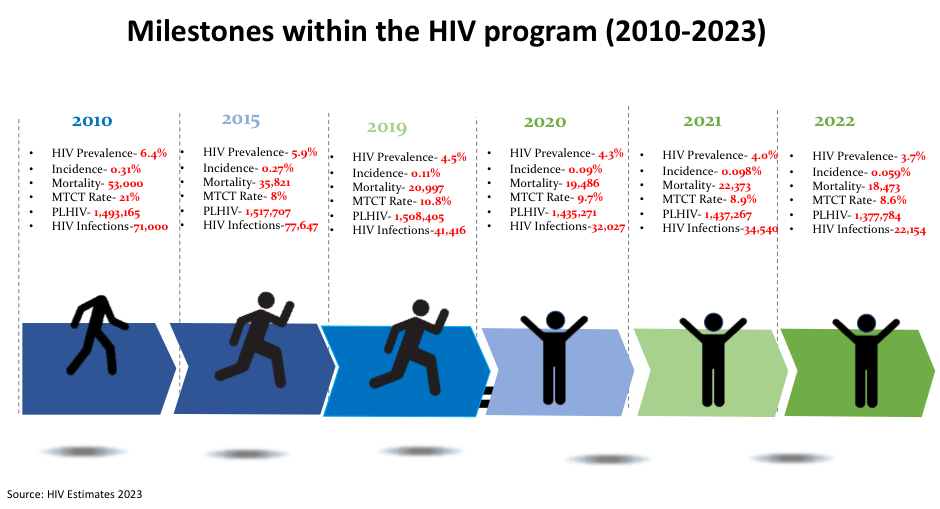
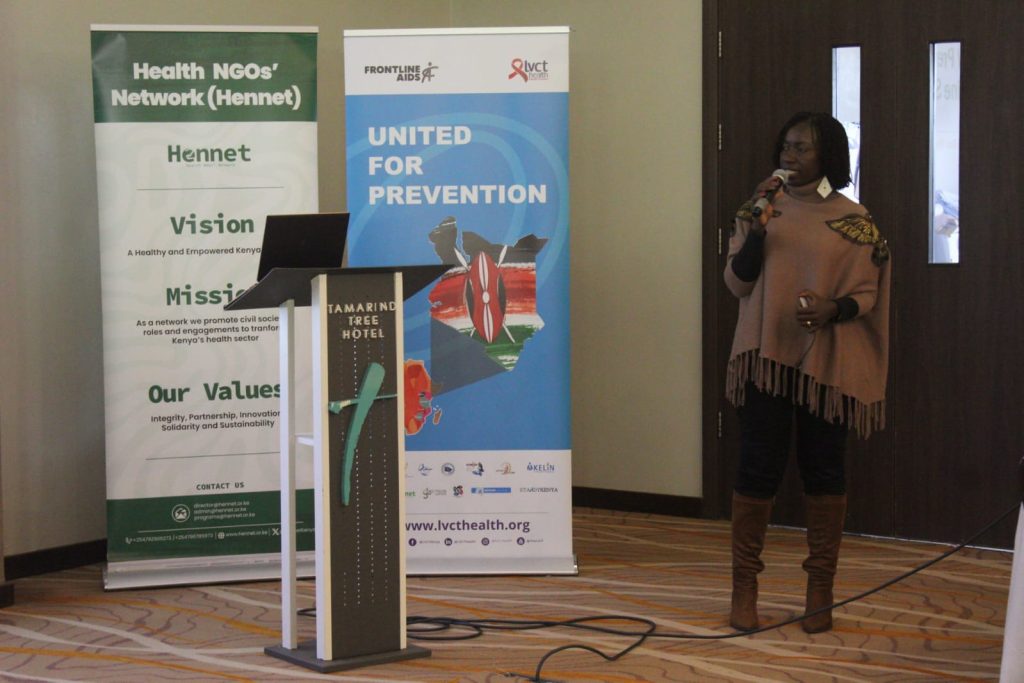
NSDCC says significant progress has been made over the past two decades in the fight against HIV/AIDS with the country’s HIV prevalence dropping from 6.4% in 2010 to 3.7% in 2022. The council attributes this to intervention measures put in place like empowering the population with relevant HIV knowledge, advocating for condom use, Prevention of Mother to Child Transmission PMTCT and ensuring those infected with the virus are constantly on antiretroviral treatment so that the majority can reach undetectable levels, lowering chances of transmission.
The report launch comes at a time when reports indicate an upward trajectory of new HIV infections and early pregnancy especially among young people. According to NSDCC HIV estimates for 2022, 41% of adult new HIV infections occur among adolescents and young people (15-24 years). If much effort is not put into place then the HIV prevalence rate is bound to shoot.
Kenya recently launched the National Multisectoral HIV Prevention Acceleration Plan 2023-2030, which will guide the nation’s trajectory for the next seven years. The overall goal of the plan is to eliminate new HIV infections occurring in Kenya by 2030.






















